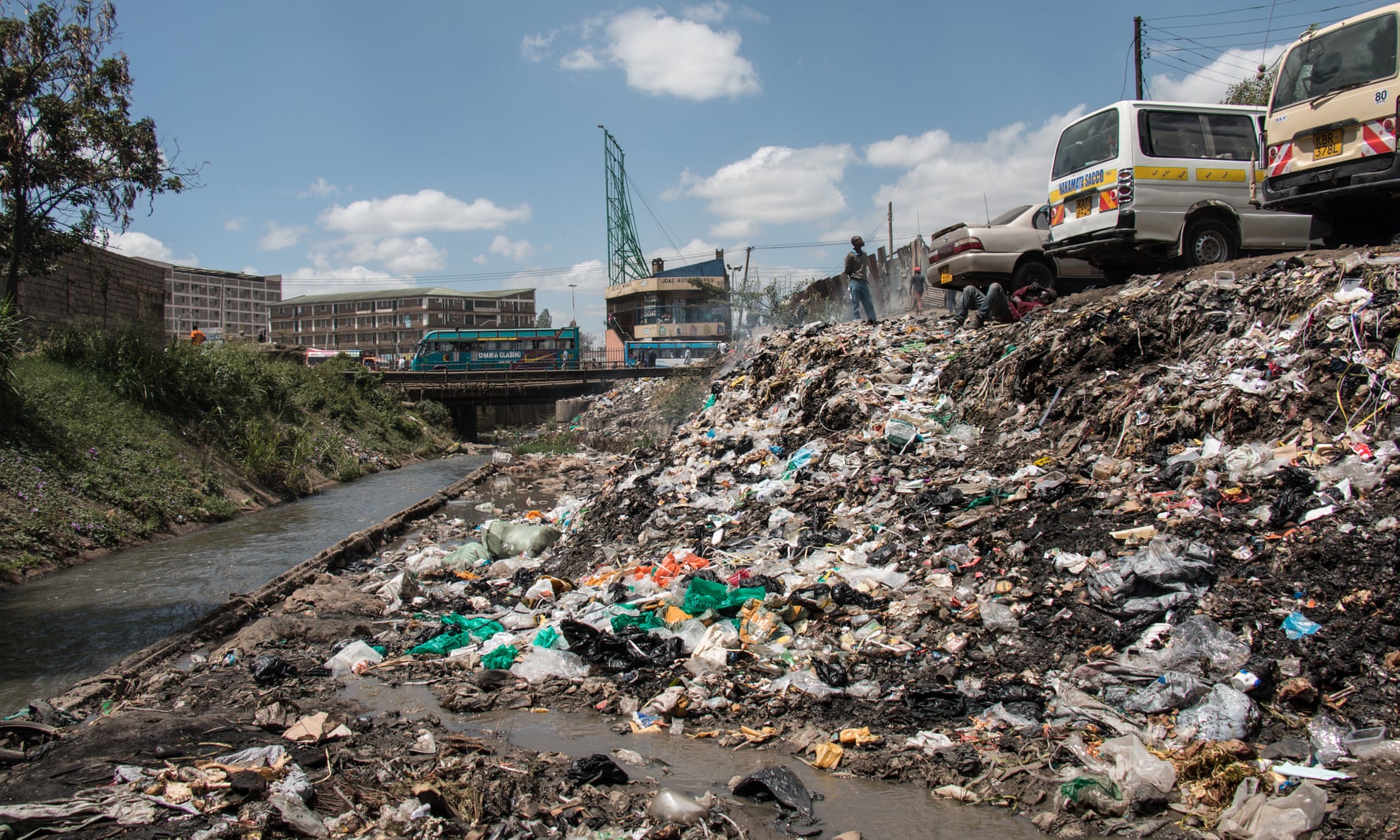Blog Post 1- Time to Ban Plastic Bags
There are many little things that we as consumers in a developed country barely notice that make our high consumption lifestyle possible. One of those little, barely noticed things are plastic bags. The plastic bag is perhaps the most symbolic item for our consumer culture. (“Battle of the Bag” 2008) As with many other everyday items, plastic bags have become so ingrained into our collective psyche that they have become part of our routine when we visit a supermarket. They are there so we use them. It’s a habit. However, unlike some of our other routines, plastic bags have serious environmental costs. Plastic bags should be banned worldwide because of the threat they pose to both animals and humans.
 |
| Plastic bags and other garbage on the banks of the Nairobi River. (Siegel, 2017) |
There is good news however. Nairobi has outlawed thin plastic bags in an effort to curb the problem there. It is easy to see why a ban was put in place. Plastic bags have taken over the city. Some even joke that plastic is the national flower of Kenya because of how common it is. (“Battle of the Bag” 2008) They are not alone either- small towns, cities, and even entire countries have banned plastic bags outright because they have become such a nuisance.
They are right to ban plastic bags. A global ban on plastic bags is the only way to stop this menace. However, local efforts to curb the usage of plastic bags need to be encouraged as well. Since plastic bags are such a problem, a combined effort at both the local and global level is needed. For example, the efforts in Modbury, England have been successful especially considering the local government was not interested in the idea. (“Battle of the Bag” 2008) However, in order to take the biggest contributors of this crisis like oil companies and supermarket chains on, national governments need to be involved. One-person crusades will not be enough to stop those making money by manufacturing and selling plastic bags.
| Plastic bags being removed from recycling sorting machines. (NRW) |
Secondly, just because plastic bags are reusable does not mean that people actually reuse them. As stated, plastic bags were developed for one purpose. That purpose is so ingrained in our minds that people habitually do not use them for much else other than garbage bags. Unlike other plastic objects, plastic bags are not recyclable either. (National Recycling Week, 2017 [NRW]) Plastic bags, when thrown into the recycling bin, end up getting caught in the machines designed to filter recyclables. (NRW) This causes those machines to jam, and makes the recycling process much less efficient. (NRW)
In conclusion, plastic bags should be banned worldwide. They are a threat to the environment and to humans around the world. Both global and local efforts are needed to stomp out this menace, and bans on them are the only way. As plastic bags have become a passive part of the human psyche, the world needs an active effort to solve this problem.
Sources
1. CBC. “Battle of the Bag.”
2008.
2. National Recycling Week:
Planet Ark. 2017. http://recyclingweek.planetark.org/recycling-info/plasticbags.cfm
3. Siegel, Nathan. “‘There is so
much out there’: Kenya’s plastic bag battle – in pictures.” The Guardian. 2017.
https://www.theguardian.com/sustainable-business/gallery/2017/jun/08/kenya-plastic-bag-battle-ban-supermarkets-recycling-pictures

No comments:
Post a Comment